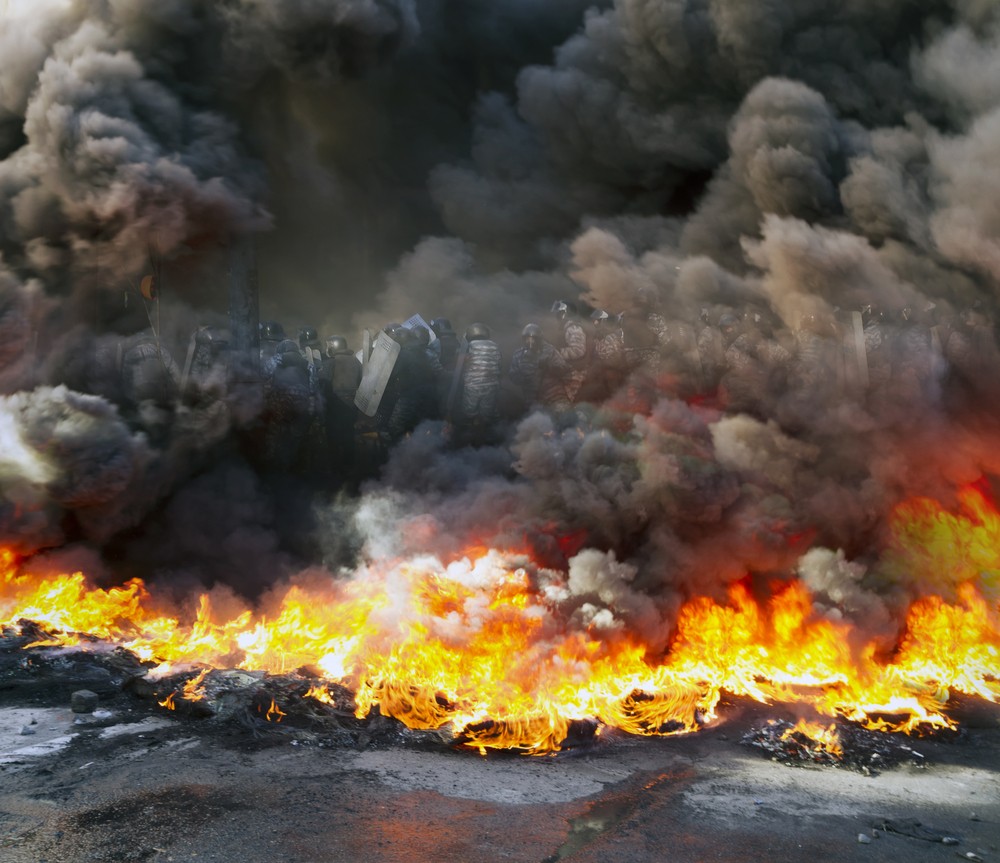- Call: 0203 427 3507
- Email: innovation@clustre.net

At the start of 2022, the mere suggestion that a European nation could be invaded by a nuclear superpower would have seemed risible. But at 5am on 24th February, no-one was laughing. Missile strikes on Ukraine’s key cities – including the capital Kyiv – have rained terror and destruction on this sovereign state. They have also destroyed the ‘peace dividend’ that has forged global alliances and fuelled world economies for the last 30 years.
At the time of writing this short article, the violence has dramatically escalated. Russian forces have bombed homes, schools and maternity hospitals in a brutal attempt to crush Ukraine’s fighting spirit. Kremlin and military leaders now stand accused of war crimes. Putin has been isolated by international condemnation. And the noose of sanctions is slowly strangling Russia’s economy…
This is economic warfare on a world scale. But, as with any conflict, pain is a double-edged sword. These sweeping sanctions have also sent a shockwave through western economies. Gas and crude oil prices are soaring as the spectre of ‘stagflation’ dashes any hope of an early post-Covid economic recovery.
The Bank of England has warned that inflation could rise above 7%. But many believe this figure is overly optimistic or even dangerously delusional. Some respected economists fear that inflation – which tracks the cost of living – could exceed 10%. One thing is certain, prices are now rising at the fastest rate for 30 years and one industry body has warned that average UK household energy bills will top £3,000 a year. This figure could plunge over a million families into fuel poverty.
No-one can predict where this tragic crisis will end. The certainty is that we will emerge from this conflict into a very different world. East and West will be even more divided by mutual distrust. Globalisation will undoubtedly be a casualty as nations scramble to become more self-sufficient. And we will all have to live with the belt-tightening reality of fuel austerity and inflationary living costs.
But painful lessons are being learnt. Britain’s (and, to an even larger extent, Europe’s) reliance on a rogue nation to supply fossil fuels will almost certainly accelerate the adoption of new, sustainable energy. In the short term, there has been a renewed interest in the controversial science of fracking to supplement the embargoed supply of Russian gas. But, in the middle and longer terms, Net Zero energy is now seen as a national necessity, not just a noble goal.
Obvious candidates include biomass, solar, wind, wave, heat exchange pumps, hydrogen fuel cells and nuclear. But new technologies – such as solar paint (developed by the Royal Melbourne Institute of Technology) which combines titanium oxide and synthetic molybdenum sulphide to generate energy – could prove decisive. And, of course, with this surge in sustainable interest will come the need to rebuild national infrastructures.
All of these challenges will put a new premium on invention and creative ingenuity. Never has game-changing innovation been more necessary… or more urgent.
This short article is an extract from our recently revised Point-of-View on ‘Innovation’. This will soon be published as a download on this site.